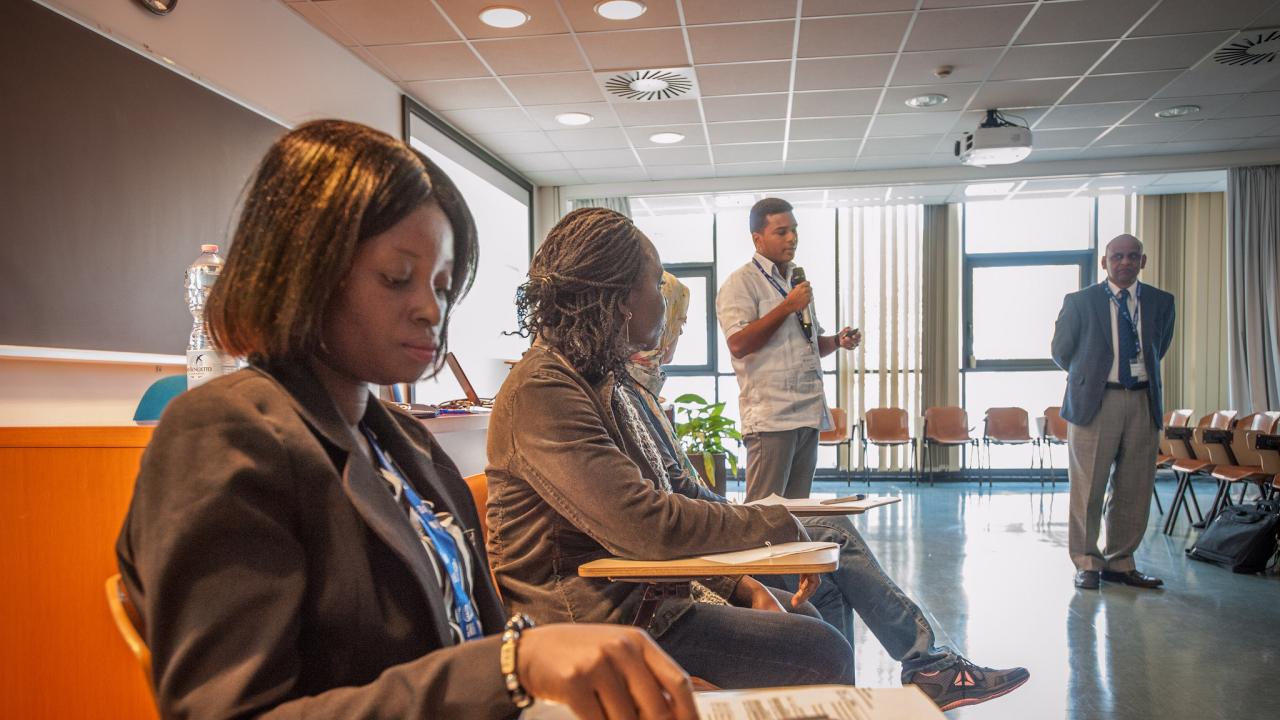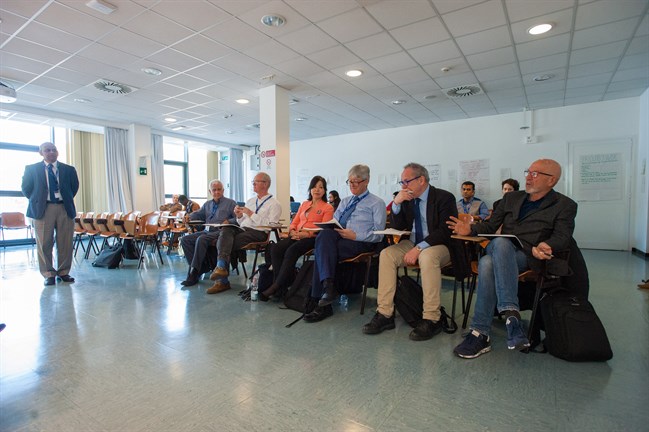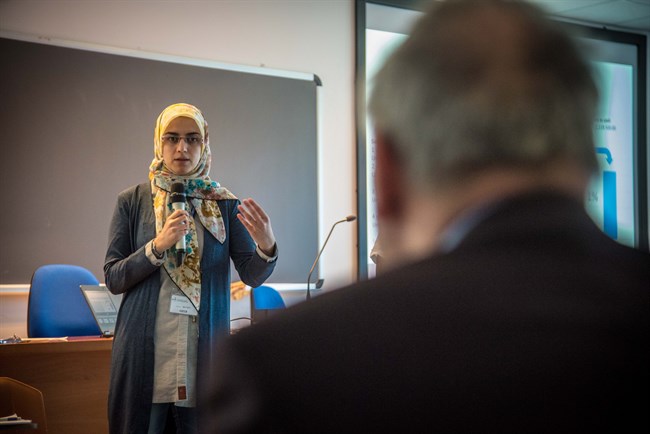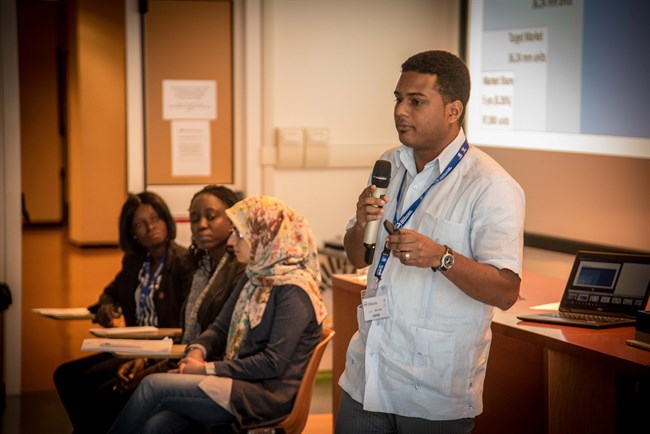
Protection of intellectual property, technology transfer, patenting, commercialisation of ideas, business plans, financial estimations: these are only a few of the topics covered during the week-long Entrepreneurship Workshop for Scientists and Engineers. Co-organized in Trieste by ICTP and the Institute of Physics (IOP), the workshop ran from 19 to 23 March and targeted science and engineering students and graduates from low- to-middle income countries. “We do tend to get participants from developing countries but we have people from all over the world: Brazil, Nigeria, Iran, Malaysia, and Italy,” says Linsey Clark, one of the organizers from IOP.
This year, the 23 participants came from 13 countries. They had various backgrounds, but they were all interested in developing a set of new entrepreneurial skills. Some had previous business experience, some already run companies, while others were students or researchers in a research institution. Throughout the workshop, they had the chance to attend lectures and receive mentoring from leading experts in the field, including three entrepreneurs within science who developed their own science-based company, a patent expert who consults with the World Intellectual Property Organization (WIPO) and a finance expert who started a finance advisory business in London.
“We really want to make them aware that there is a career in entrepreneurship, a possibility they can contribute to their societies, becoming self reliant rather than looking for a job, trying to get their own business and contribute to the needs of their own countries. Instead of jobs seekers they can become jobs creators,” Surya Raghu, one of the organizers, says proudly.
Over the week, participants worked in small groups to develop new ideas and innovative solutions for issues concerning their home countries, ideas that could be brought to the market. “They divide themselves into teams, and we take them through the elements they need to develop their pitch and idea of business,” says Linsey Clark. On the last day, all groups presented their projects in front of a panel of six experts who will judge them according to the innovation of their idea, and their presentation, teamwork and business planning skills.
 |
“They have come up with several interesting ideas,” said Ms Yumiko Hamano, member of the judging panel and employed for over 27 years at WIPO. Ideas include, among others, a mobile-based service to provide reliable information during typhoons, floods and landslides in the Philippines that can save up to 1.5 million lives, IOT technology to monitor the quality of the soil in real time and help farmers maximizing yield, an integrated sensor placed in ergonomic jewels to monitor the amount of ionizing radiation we are exposed to, and an innovative technology based on bacteria to turn plastic into fertilizers.
A little more research and project development is all that is needed to transform some of these ideas into new companies. It has already been the case in the past for a number of technology-based companies created after this workshop in the Philippines, South Africa, and Iran.
 |
|
|
Besides providing technical skills, the workshop has also the merit to foster networking and open discussions among participants: “What I enjoyed the most about this experience is the possibility to make connections with people from different countries and with different backgrounds. It’s a huge opportunity to learn and broaden my understanding,” says Délphine Abijuru, an enthusiastic PhD student in electrical engineering from Rwanda. When asked the one thing she will take home from this experience, she says: “The idea that it’s not that easy to go into business, you need more than a good idea. You need to be aware of the market, the competition, the feasibility. You need to take risk, you might fail or succeed. But here they also encourage you to ask yourself: are you really willing to go for it, are you committed enough?”
In this respect, Hajar Vakili from Iran has no doubts: as the number of educated people in her country is increasing more and more and academic positions are filled very quickly, she really aims to become an entrepreneur. And she is already working on an idea: “I want to build an online platform linking top Iranian scientists and students. I want young generations in my country to really understand how science works. This platform will use their native language, Persian, to encourage them to approach science and ask questions.”
The workshop turned out to be extremely useful also for those who see their future in academia: “I wish to be a professor but an entrepreneur as well. This workshop has been inspiring. It provides tools to bring ideas outside of university, to the manufacturing state,” says Ashen Gomes, a participant from Sri Lanka who now studies engineering in Malaysia. Yumiko Hamano from WIPO has a strong opinion on this particular point: “Many times universities don’t understand the needs of the market. They under estimate the competition or they do not understand consumers’ minds and needs. But universities can’t avoid participating in the economic innovation cycle. These knowledge creators own the technology to bring new solutions to social problems. This is exactly what we are targeting here.”
--- Anna Lombardi
Photos of the workshop are available here: http://ictp.it/suef4
Interviews from participants of past editions have been collected by Surya Raghu, one of the organizers, and can be watched here: https://youtu.be/94fZFciYOMQ
The first workshop of this kind was run in 2006 and, since then, it’s organized every other year here in Trieste.

















